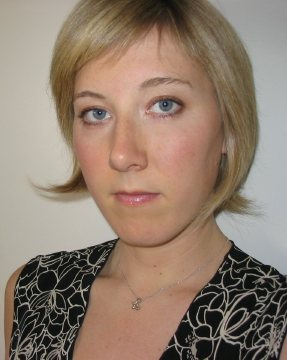 Actress Helena Bonham Carter discusses her struggles with infertility in the Sydney Morning Herald, a topic of conversation that most celebrity mothers tend to keep under wraps lest they damage their image of 'good' motherhood. Let's face it. Women who are infertile or who have difficulty falling pregnant are positioned culturally as 'failures' and in particular, 'older' women (especially over 40) are constantly represented as being 'selfish' for bringing a child into the world in a uterus nearing its use-by date.
Actress Helena Bonham Carter discusses her struggles with infertility in the Sydney Morning Herald, a topic of conversation that most celebrity mothers tend to keep under wraps lest they damage their image of 'good' motherhood. Let's face it. Women who are infertile or who have difficulty falling pregnant are positioned culturally as 'failures' and in particular, 'older' women (especially over 40) are constantly represented as being 'selfish' for bringing a child into the world in a uterus nearing its use-by date.For instance, in an article about pre-conception diets for 'older' mothers today, the author uses similarly negative language to explain how women of a certain age can better their chances of becoming mothers:
"Women are most fertile between 17 and 25. Over the age of 35, one woman in three will have trouble getting pregnant. It's not always the woman's fault – in 40 per cent of cases the finger can be pointed at the male. There are various reason why a woman finds it harder to conceive in these later years – there may be a structural problem with the reproductive organs, like blocked fallopian tubes, or a disease of the uterus like fibroids or endometriosis. Most cases, though, are due to a failure of ovulation – eggs just don't ripen and release when they're supposed to. This is usually because of a hormonal imbalance – at an older age, the body isn't producing enough sex hormones at the right time and in the right amounts to ovulate successfully."
As you can see from the words I've highlighted, the language of failure is invoked in talking about certain women's inability to fall pregnant. This is almost always tied to insufficient biology; as a woman ages her reproductive capacities are seen to degenerate. She is no longer valued as a 'producer' as the quote above suggests. This is in spite of the fact that 40% of causes of infertility are due to issues with the woman and 40% of causes are due to issues with a male. Yet, in an article of this nature, men's problematic reproductive capacities are never discussed. The quality of a woman's eggs are always the most important site for criticism.
Helena Bonham Carter,currently 8 months pregnant with her second child, utilised Clomid to jump start her fertility after trying for many months without a pregnancy at the age of 41. She says:
"I had a terrible reaction to it," she says. "Many people think it is the only thing that's going to make them ovulate but as it turned out I was ovulating anyway. It stressed me out beyond belief. Hormonally, I was all over the shop and I got really low emotionally. Lots of people don't have that reaction but on the internet I found a Clomid club, with people who react to the stuff discussing it online."
Fortunately, Carter fell pregnant before she had to take the next excruciating steps into IVF. I find it interesting that a number of countries including the Netherlands are trying to enforce preconception care particularly because so many 'older' women are having babies. This is seen as a way to stem the birth of babies with genetic 'defects'. Although there is good research suggesting a healthy lifestyle is beneficial in pregnancy for a number of reasons, the idea that 'older' women can only produce 'damaged' good lest they eat x number of servings of green vegetables, cut out all caffeine and lose heaps of weight is problematic. As I've said before, government have complained for ages that too many 'young' women in their late teens and early twenties are having babies out of wedlock and are too irresponsible to look after children. Yet, now that women are having babies when they are ready, they are threatened with the prospect of birthing deficient children and for being castigated as selfish for holding off on motherhood.




No comments:
Post a Comment